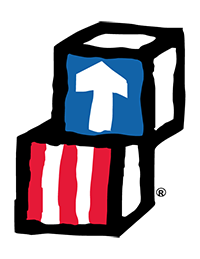Family Economic Mobility (FEM) Training and Technical Assistance Feedback
Formative Data Collections for ACF Program Support
3 - Short-Term Outcome Interview Form_6-01-2022
Family Economic Mobility (FEM) Training and Technical Assistance Feedback
OMB: 0970-0531

Family Economic Mobility (FEM) Training and Technical Assistance Feedback
Short-Term Outcome Interview Form
PAPERWORK REDUCTION ACT OF 1995 (Pub. L.
104-13) STATEMENT OF
PUBLIC BURDEN: The purpose of
this information collection is to understand participants’
current and anticipated needs that the Office of Head Start can
address in future offerings of training and technical assistance
provided by the National Center on Parent, Family, and Community
Engagement. Public reporting burden for this collection of
information is estimated to average 40 minutes per response,
including the time for reviewing instructions, gathering and
maintaining the data needed, and reviewing the collection of
information. This is a
voluntary collection of information. An
agency may not conduct or sponsor, and a person is not required to
respond to, a collection of information subject to the requirements
of the Paperwork Reduction Act of 1995, unless it displays a
currently valid OMB control number. The OMB # is 0970-0531 and the
expiration date is XX/XX/202X. If
you have any comments on this collection of information, please
contact [contact
info to be added at event]

QUESTION SKIPS: This instrument contains general feedback questions, and three sections for specific feedback on three components of the FEM Academy. Certain items will be skipped depending on the content of the virtual coaching session. Virtual coaching sessions are individualized throughout the FEM Academy based on the needs of the participants and therefore, the skip logic for the items used from this instrument will be based on the content of the virtual coaching sessions. For example, all items in section 3C would be skipped if participants of the virtual coaching session are not made aware of the FEM Toolkit component.
3A. General Feedback Questions
We would like to ask you several questions about your virtual coaching session.
What is your overall first impression of the coaching session?
What component of the coaching session resonated the most with you?
As you reflect on the coaching session and content material, what is one area you feel most confident about?
Discuss why you feel confident in this particular area.
Is there an area you do not feel comfortable with or an area(s) that maybe challenging?
If yes, take some time to discuss why you do not feel comfortable yet in this area or what you consider challenging.
Reflect on your current work environment. How would you rank where topics covered in the coaching session are applicable in your work environment?
Discuss how you would apply content from today’s coaching session into your next interaction with families.
Is there content not covered during today’s coaching session that you feel should have been discussed further?
Reflect on your current work with families. Walk through a scenario with a family and how you would apply the content from the training.
Reflect on the relevance of family economic mobility. Discuss the level of importance or priority your organization place assigns on family economic mobility and related topics.
Discuss your perceptions of your organization’s prioritization of family economic mobility.
Does your organization’s prioritization affect your comfort level when engaging in family economic mobility discussions with families?
Does your organization provide a sufficient amount of professional development focused on family economic mobility?
If yes:
How would you rate the quality of the professional development focused on family economic mobility?
What areas could be improved?
Are there other areas of professional development related to family economic mobility you feel should be provided to program staff?
Is professional development frequent enough to meet your needs?
If no:
What areas of professional development are most important to your interaction with families?
In your opinion, how often should professional development be offered?
3B. Feedback QUESTIONS on FEM TOolkit Component
We would like to ask you several questions about your experience with FEM Toolkit.
What tools from the FEM Toolkit seem most applicable to the families you currently work with?
Reflect on how you will integrate the tools from the Toolkit into your practice as you interact with families.
Do you feel there are areas important to your interaction with families which are not covered in the toolkit?
Discuss those areas and how you would like to see these topics included.
Do you feel those in your work environment place a high importance on elements of the toolkit to guide families towards their economic goals?
Does the Toolkit provide you with a sense of confidence in your work with families?
Describe a scenario in which you use/used a specific tool in the Toolkit and how you believe that specific tool or tools had a positive impact/will have a positive impact on families.
3C. Feedback QUESTIONS on Program-to-Program Component
We would like to ask you several questions about your experience in the Program-to-Program Special Project/Strategies/Commitment.
Describe the steps your team took to develop your program-to-program project/strategies/commitment?
Describe the most important strategies your project/strategies/commitment developed to address family economic mobility?
Describe the input you as an individual provided to create and develop the project.
What component of the FEM Academy inspired the Program to-Program project/strategies/commitment?
Where do you believe your Program to-Program project/strategies/commitment will have the greatest impact?
How will the Program to-Program project/strategies/commitment help you to absorb (or internalize) the FEM Academy training?
In what ways (how) will the project/strategies/commitment outcomes/results become integrated into your organization?
How do you believe Program to-Program project/strategies/commitment will impact practice change at your organization in the (a) short-term and (b) long-term?
3D. FEedback Questions on Community Partnerships Component
Part I
Consider the types of community agencies you currently engage with. For example, community action agencies, non-profits, educational agencies, and Tribal organizations, and non-government and governmental agencies.
Discuss the specific types of community agencies you typically work with.
Discuss how these types of agencies engage in promote or support family economic mobility.
Do you feel these organizations prioritize the area of family economic mobility? Please describe.
Part II*
Determining engagement goals/purpose
In what ways was the community/family involved?
Who are some of the key community partners (organizations, individuals, institutions) that are already involved in this work?
Describe their involvement and contributions
Describe the benefits of the potential community engagement/partnership work.
Part III*
Choosing the right tools/strategies
Identifying 1-3 goals for engaging the community/family
Identifying 1-3 considerations/barriers for your specific community/family regarding the selection of tools and strategies
What strategies/tools has your organization/program used in the past to engage w/ the community/family?
How successful/unsuccessful were they?
Identify 1-3 strategies/tools that you think might be a good fit for your community engagement purposes
Explain how those strategies/tools would help you achieve your goals in engaging the community/family.
| File Type | application/vnd.openxmlformats-officedocument.wordprocessingml.document |
| Author | Iheoma U. Iruka |
| File Modified | 0000-00-00 |
| File Created | 2022-06-27 |
© 2026 OMB.report | Privacy Policy